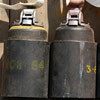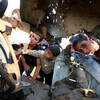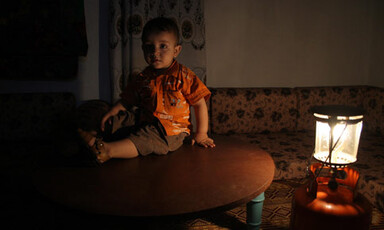
Is this Jericho or Hell?
Nablus 27 August 2007
My husband and I left Amman at dawn with our three-month-old-son, and arrived at the Jordanian border control just after 8am. From there its a few minutes’ drive to the Israeli section of the border, then three-and-a-half hours of sitting in a sweltering hot bus waiting at the entrance to the border compound. It was 40 degrees celsius outside, and the stationary bus was like a greenhouse. Inside the compound, Israeli officers took me to one side as I was going through the x-ray. What followed was seven hours of waiting and wondering. Read more about Is this Jericho or Hell?








